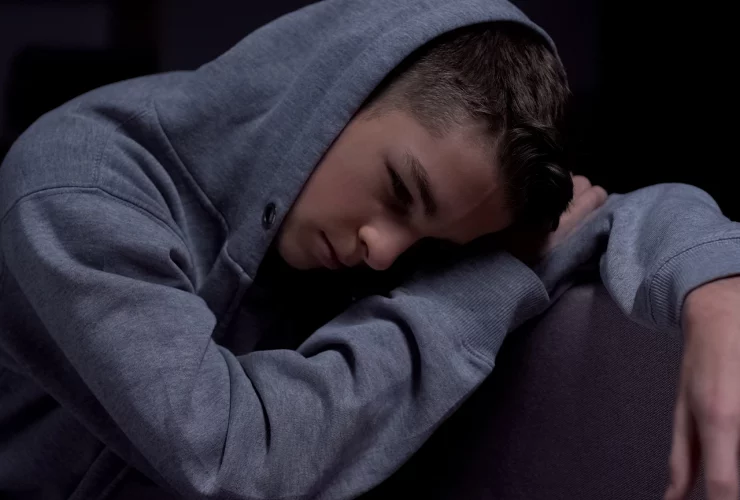What Are the Side Effects of Zopiclone
The clock reads 3 a.m., and you’re again staring at the ceiling. The frustration mounts as another sleepless night stretches before you. If this sounds familiar, you’re not alone.
Millions struggle with insomnia, desperately seeking rest. Zopiclone, a commonly prescribed sleep medication, might seem like a beacon of hope in those dark hours. But before you reach for that pill, it’s crucial to understand its potential benefits and the possible downsides.
This article will delve into the side effects of zopiclone, arming you with the knowledge you need to make an informed decision about your sleep and overall well-being.
What is Zopiclone?
Zopiclone, often sold under brand names like Imovane or Zimovane, is a prescription medication specifically designed to treat insomnia, a common sleep disorder characterized by difficulty falling asleep or staying asleep. It belongs to a class of drugs called non-benzodiazepine hypnotics.
While not a benzodiazepine itself, zopiclone works in a similar way by enhancing the effects of a neurotransmitter called gamma-aminobutyric acid (GABA) in your brain. GABA is a natural calming agent that helps to slow down brain activity, making it easier to relax and fall asleep.
It’s important to note that zopiclone is usually prescribed for short-term use, typically for a few days to a couple of weeks. This is because your body can become accustomed to it over time, making it less effective. Additionally, prolonged use can lead to dependence, making it difficult to stop taking the medication without experiencing withdrawal symptoms.
Common Side Effects of Zopiclone
While zopiclone can be effective in helping you fall asleep and stay asleep, it’s not without its potential drawbacks. Let’s start with the most common side effects.
Drowsiness and Fatigue
Feeling drowsy or overly tired during the day is a frequent complaint among those taking zopiclone. This can affect your concentration, work performance, and even your driving ability.
Unpleasant Taste
A bitter or metallic taste in your mouth can linger after taking zopiclone. This can be particularly bothersome for some individuals and may interfere with enjoying meals.
Dry Mouth
Zopiclone can reduce saliva production, leading to a dry mouth. This can cause discomfort and difficulty swallowing, potentially contributing to oral health problems.
Dizziness and Lightheadedness
Especially when standing up quickly, some people experience dizziness or lightheadedness while taking zopiclone. This can increase the risk of falls and accidents.
Headaches
While not as common as the other side effects, headaches can occur in some individuals taking zopiclone.
While these side effects are usually mild and temporary, they can still significantly impact your quality of life. It’s important to weigh these potential discomforts against the benefits of improved sleep before deciding if zopiclone is right for you.
Related Article: How Long Does Zopiclone Stay in Your System?
Less Common But Serious Side Effects
While the previously mentioned side effects are more common, there are a few less frequent but more serious issues that can arise with zopiclone use.
Memory Problems and Confusion
Some individuals report memory lapses, forgetfulness, or difficulty concentrating while taking zopiclone. This can be especially concerning for older adults.
Complex Sleep Behaviours
In rare cases, zopiclone has been associated with sleepwalking, sleep-driving, and even preparing and eating food while asleep, with no memory of the events upon waking.
Dependence and Withdrawal
Prolonged use of zopiclone can lead to physical dependence. If you abruptly stop taking it, you might experience withdrawal symptoms like anxiety, tremors, or difficulty sleeping.
It’s crucial to pay attention to any unusual changes in your behaviour or thinking while taking zopiclone. Contact your doctor immediately if you experience any less common side effects.
Who’s Most at Risk?
Certain factors can increase the likelihood of experiencing side effects from zopiclone:
- Age: Older adults tend to be more sensitive to the effects of zopiclone and may be at higher risk for side effects like confusion or memory problems.
- Dosage: Higher doses of zopiclone are generally associated with an increased risk of side effects.
- Other Medications: Zopiclone can interact with other medications, potentially increasing the risk of side effects. It’s essential to inform your doctor about all your medications, including over-the-counter drugs and supplements.
What to Do If You Experience Side Effects
If you experience any side effects from zopiclone, don’t hesitate to talk to your doctor. They can help you determine whether a dosage adjustment or an alternative medication might be better.
Important Note: Never stop taking zopiclone abruptly without consulting your doctor. They can guide you on how to taper off the medication safely to avoid withdrawal symptoms.
Addressing Addiction Concerns
It’s important to be aware that zopiclone, like other sleep medications, carries the potential for abuse and dependence, especially with prolonged use. This can happen even when taken exactly as prescribed.
If you need higher doses to achieve the same effect or feel unable to sleep without the medication, it’s crucial to talk to your doctor. Open communication with your healthcare provider is key to managing your sleep issues safely and effectively.
If you’re concerned about dependence or addiction, there are various treatment options available. These can range from counselling and behavioural therapy to medication-assisted treatment. Don’t hesitate to seek help; addressing the issue early can prevent further complications.
Related Article: Is Zopiclone Addictive? Understanding the Risks and Safe Use
The Path to Restful Sleep
Zopiclone can be a valuable tool for those struggling with insomnia, but it’s not a magic bullet. Understanding its potential side effects is crucial for making informed decisions about your health. Remember, open communication with your doctor is key. If you experience any concerns while taking zopiclone, don’t hesitate to reach out to them for guidance.





